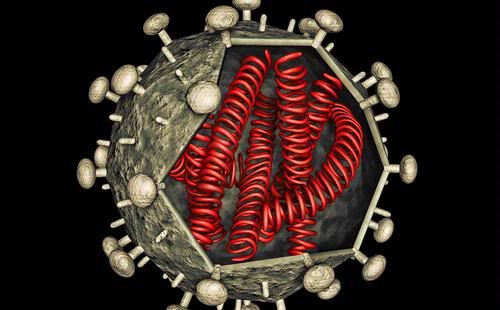Thus disclosed Bruce Walker, director of Ragon imunolog and the Institute of the Massachusetts General Hospital, Massachusetts Institute of Technology and Harvard University in Charlestown. According to the findings, the opportunity to stage of HIV infection did not develop into AIDS occurs in 1 in 300 people.

The study began when Walker know the clinical benefit that is owned by patients-patients who have immunity to HIV through the HIV Controllers Study. "I think we can form a group to analyze it. We have to find the genetic uniqueness of a person who has immunity," said Walker.
Walker and his team took DNA samples from 900 HIV patients Controller or persons who have immunity to HIV earlier. They compare it with the genetic code contained in the 2600 people who give a normal response to HIV. For comparison, he uses the Genetic Wide Association Study (GWAS).
GWAS will analyze single nucleotide polymorphism or changes in the genetic code that gave rise to a variation in certain individuals. Through the study, Walker found, there are about 300 locations that are statistically associated with the immune response to HIV. The locations were found associated with the genetic mengode immune protein called HLA proteins.
Using detailed mapping of the HLA region, Walker found an amino acid in HLA-B proteins are different between normal individuals and HIV Controller. He said that amino acids may be responsible for immunity to HIV.
"Of the 3 million nucleotides contained in the human genome, I found the amino acids that make normal individuals and HIV Controller different," said Walker.
HLA-B protein is a type of protein that is responsible for fighting the virus. However, so far unknown mechanism of these proteins to build immunity against HIV. "We're trying to figure out what these proteins do and defense mechanisms. There is still much work to do," said Walker.
An understanding of the mechanism of action of these proteins is likely to underlie the development of vaccines. "It takes a long time to understand it. But the good news is there is knowledge about the immune system. That means there is good news for the vaccine because the vaccine is to manipulate the principle of immunity," said Walker who published his research in Nature journal sites, 4 November.
source : http://health-food-nutrition.blogspot.com




No comments:
Post a Comment